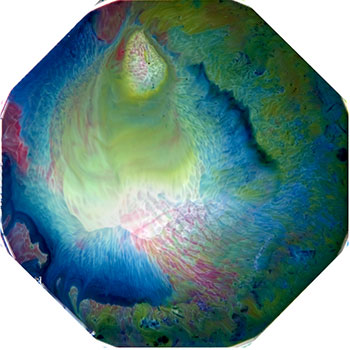What is the function of a transitive verb? Could you explain the answer?
a) to direct action toward the verb's object
b) to direct action toward the sentence's subject
c) to define or rename the verb's object
a) to direct action toward the verb's object
b) to direct action toward the sentence's subject
c) to define or rename the verb's object
2 Answers
a) to direct action toward the verb's object
Explanation:
"Transitive" means to move between things; a transitive verb describes action that takes place between two or more things or people.
In the sentence "I sold the piano," sold is the transitive verb that describes what you did to the piano.
In contrast, in the sentence "I grew up," grew is an intransitive verb; you didn't do anything to anyone or anything else, so the action didn't move from one thing to another.
In the example:
- b) isn't correct since the reader or speaker already knows who or what the subject is.
- c) isn't correct because verbs don't define or rename
things. - a) describes action between two things, and so is correct
.
A sentence with a transitive verb is one in which the object(s) receive the action done by the subject.
Explanation:
The objects receive the action either directly (Direct Object, D.O.) or indirectly (Indirect Object, I.O.).
Examples :
I threw the ball . (the ball is the D.O. - what is thrown)
I threw the ball to Mike. (Mike is the I.O. - the "beneficiary" of the throwing)
Indirect Objects are usually preceded by the preposition "to" or "for". In the case above, the ball is what is thrown, and Mike receives what is thrown.
As far as your last option above - letter (c) - I suppose you could say, "I renamed our newly adopted dog ." Dog is the D.O., because it receives the action of renaming.
As far as defining, one could say, "A ball is as close to a perfect sphere as you're going to see in daily life." but this is a sentence with the verb, "to be", which is a different matter .
"To be" introduces an equivalency situation, equating the subject with either a predicate noun or predicate adjective.
Examples :
A dog is a mammal; so is a cat. (mammal, cat are nouns)
His pet was an iguana, which is a reptile. (iguana, reptile ditto)
Iguanas can be red and blue now, not just green. (true actually) (red, blue are adjectives)
The various finite (conjugated) forms of the verb "to be" do not take objects because they do not transfer action; they describe or connect the subject with the predicate noun or adjective.
More Examples :
I washed my face. I washed the dog. (D.O.'s)
I told him the answer. (I.O.)
He made a suggestion to his father .(suggestion, D.O.; father, I.O.)
"I washed up" is different. The verb here is "to wash up", one of many phrasal verbs in English. It's meaning implies you are doing it to yourself.
English has many of these phrasal verbs, where the preposition is part of the verb - to look at, to look out, to look out at, to look out for, to look in, to look in on . . . . and so on.
Connie


